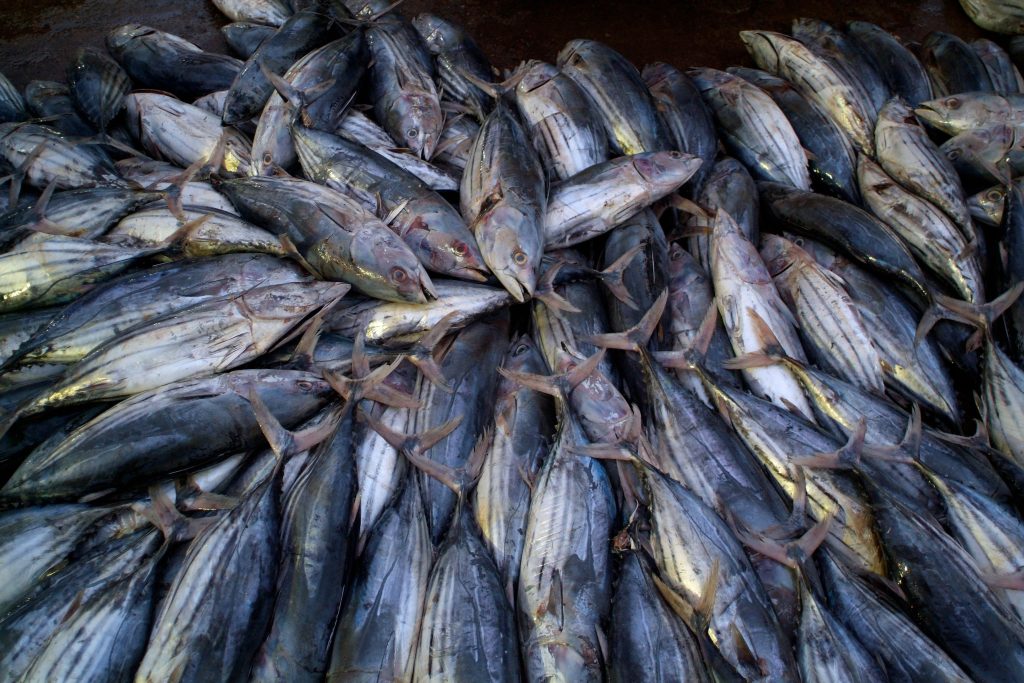
Combating illegal, unreported and unregulated fishing (IUU fishing) is key to the integrity of the international legal framework and the rules-based international order. A report by the Asia-Pacific Development, Diplomacy & Defence Dialogue (AP4D) considers this problem and how Australia can combat IUU fishing with a range of defence, development and diplomacy tools.
As acknowledged in the 2016 defence white paper, IUU fishing can pose a direct security threat to Australia’s maritime resources and borders. Australia has the world’s third largest exclusive economic zone, stretching across the Pacific, Southern and Indian Oceans. IUU fishing threatens the harvest of fish stocks both within and beyond the Australian Fishing Zone, impacting fishing communities in Australia and in neighbouring countries.
This issue will only worsen as the climate changes. Climate change is already affecting the abundance and distribution of fisheries with more significant declines predicted, especially in the equatorial zone. With declining fish stocks pushing fishing fleets into different areas, including Australian waters, Australia must engage multilaterally and build coalitions against IUU fishing.
Importantly, IUU fishing does not only threaten fisheries themselves—it is also a vehicle for other illegal activities.
IUU fishing vessels avoid a range of regulations and can facilitate transnational organised criminal activities. These border security threats include human trafficking, forced labour, the trafficking of wildlife, weapons and narcotics, environmental destruction, and corruption.
There is also potential for fishing vessels to be used as a cover for unauthorised research activities such as seafloor surveying, and as a tool in grey zone tactics. Increased pressure to supply certain fish is also incentivising seafood fraud via mislabelling, which risks affecting consumers and undercutting Australian exporters.
IUU fishing can also spark conflict and exacerbate maritime boundary disputes. By challenging maritime boundaries, illegal fishing damages relations and harms cooperation on fisheries management. As a result, fish stocks could continue to decline to the point of collapse. If fisheries collapse and traditional fishing waters no longer provide an adequate catch, fishers may be forced to go further afield, including into Australian waters.
It is in Australia’s interest to be proactive in managing this to prevent problems that will directly affect Australia and to promote well-regulated spaces. Like all rules in the international order, IUU fishing laws lose legitimacy if they are broken with impunity and without consequences. Upholding the international legal framework for fishing defends the integrity of the maritime order and protects Australia.
Australia has several tools to combat IUU fishing. Fisheries management is a whole-of-government issue linking security, trade, foreign policy and development cooperation.
Deployment of naval vessels remains a powerful mechanism for maritime border protection, deterrence and enforcement. Defence intelligence-gathering is also fundamental to addressing unreported fishing and Defence continues its significant role in this through the Pacific Maritime Security Program. There is potential to replicate this successful program in the Indian Ocean to address the significant lack of capacity there compared to the Pacific.
In development terms, collaborating with Indo-Pacific states to build knowledge and improve their maritime security systems will strengthen the rules-based order. In some cases, the cause of IUU fishing is poverty, as is recognised in Australia’s approach to sustainable fisheries management. When small-scale fishers come from poor fishing communities into Australian waters in search of catches, decision-makers need to see their actions from this perspective.
An example of doing this well is the recent agreement between Indonesia and Australia’s to strengthen cooperation on IUU fishing.
The agreement permits traditional Indonesian fishers, using traditional fishing methods only, to operate in about 50,000km2 of Australian waters in the Timor Sea, known as the ‘MoU Box’. Australia’s responses need to involve considered cooperation like this to address some of the root causes of IUU fishing like sustainability, climate change, economic pressures, and education.
Diplomacy is critical for good fisheries governance and to build the region’s capacity. Australia’s desire to improve the clarity of the rules on fishing has seen it develop agreements and action plans both bilaterally and multilaterally with its neighbours.
In the Pacific, Australia is a strong partner of the Pacific Island Forum Fisheries Agency and The Pacific Community. It supports the Niue Treaty and its subsidiary agreement to enhance cooperation in fisheries surveillance, law enforcement and data-sharing.
In Southeast Asia, Australia works with ASEAN regional fisheries mechanisms, including the Southeast Asian Fisheries Development Centre and Fisheries Consultative Forum. Australia was instrumental in establishing the Regional Plan of Action to Promote Responsible Fishing Practices, a ministerial initiative between eight ASEAN member states, Timor-Leste, Papua New Guinea and Australia to strengthen fisheries management and promote responsible practices.
Australia is also part of forums such as the Indian Ocean Rim Association. However, it should expand its partnerships in this strategically important region.
Australia can also build relationships with like-minded partners through key regional economic and security organisations. For example, the Quadrilateral Security Dialogue recently launched a maritime initiative to curb illegal fishing, while the Asia-Pacific Economic Cooperation agreed to a roadmap on combating IUU fishing.
IUU fishing does not fit neatly under a single arm of statecraft. It encompasses a wide range of issues that impact ecosystems, economies, human security, international law, governance and human development. Australia must break down barriers between different parts of government to ensure all arms of statecraft are engaged and coordinated in tackling these challenges.
Australia’s role as an effective partner in combatting IUU fishing is an investment in international stability. Australia must continue its leadership and build on this foundational work in awareness, transparency and problem-solving around IUU fishing.
(This article draws upon AP4D’s report What does it look like for Australia to be an Effective Partner in Combatting Illegal, Unreported and Unregulated Fishing funded by the Australian Civil-Military Centre. AP4D thanks all those involved in consultations. The report was launched by Minister for International Development and the Pacific and Minister for Defence Industry Pat Conroy.)

